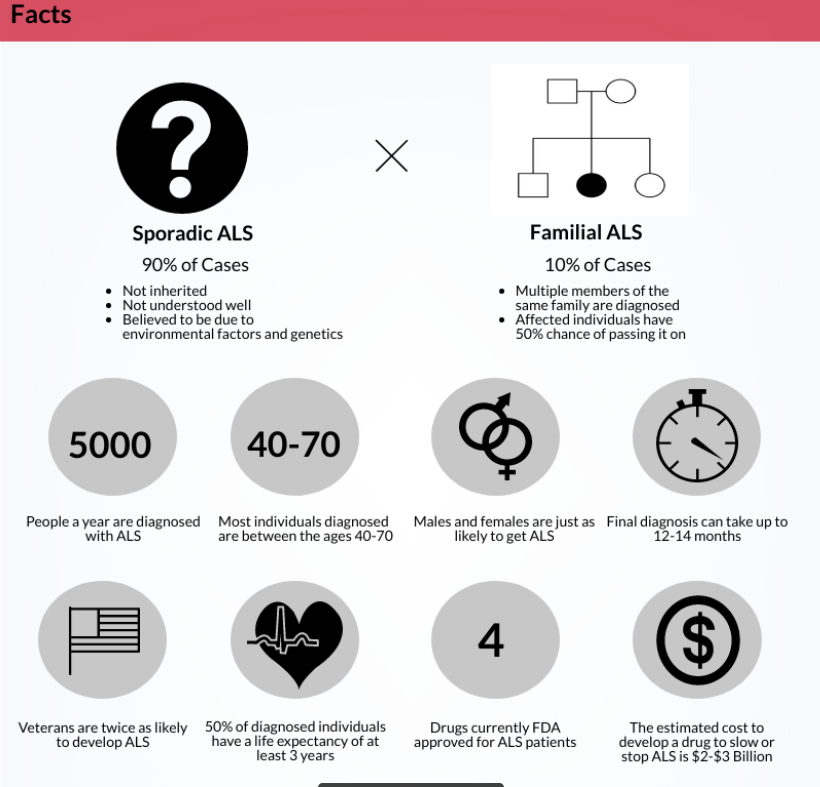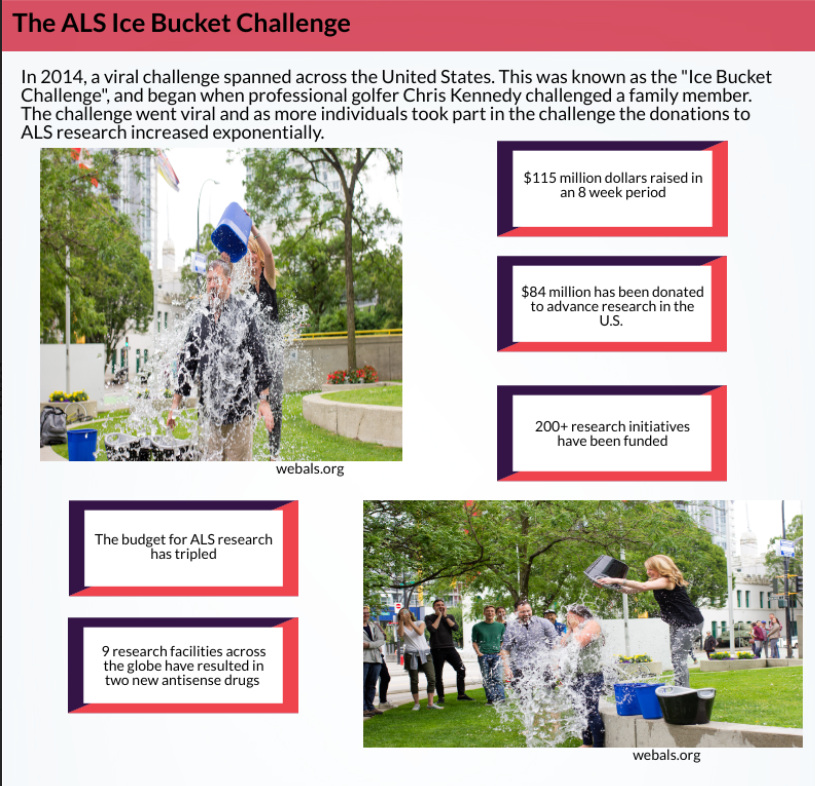Amyotrophic lateral sclerosis
- Zak Leighty
- Apr 29, 2020
- 5 min read
#ALS #ENDALS #ALSAssociation #LouGehrigsDiesease #IceBucketChallenge #VoiceYourLove #EveryCommunity #OneReasonIHaveHope #NoWhiteFlags
Zak has went through a lot. Yet, you'd never know it. He will always return a smile in the hallway. He'll get things done and never complain. He always seems to have a positive attitude, at least that has been my impression of him. I hope some day I read his name in a news article about the cure to ALS.
How would you connect world renowned genius Stephen Hawking, to legendary baseball players such as Jim "Catfish" Hunter and Lou Gehrig, or to Stephen Hillenburg, the creator of the greatest cartoon of my generation; Spongebob? These men are all very successful in such diverse professions but the thing that connects them is they all have fought the same battle, a battle with an invisible killer known as Amyotrophic lateral sclerosis or ALS. All of these men have lived unforgettable lives and they are all known for the things they have achieved but most people are unaware of the disease that ended each of their lives and I too was the same way until recently. ALS is a horrid disease that has affected the lives of not only the individual alone, but also the family of the individual. When you say "ALS," many people are unfamiliar with the problem that those three simple letters hold. As with any idea or disease, the first three questions that may arise are; "What is it?" "How do people with this disease live?" "Is there a cure?".
In February of 2018 I received a phone call from my mother, and it was about my dad. After months of testing, we found out that what we thought was just the effects of a stroke, were much worse. My father was diagnosed with amyotrophic lateral sclerosis. This disease took a huge toll on my father, who regressed from slowly walking to being completely confined to a wheelchair. Here he was, my father who my two brothers and I depended on so much as we grew up was there unable to move a muscle and fully rely on his three sons for everything. From the day he was diagnosed, I would travel home from school on the weekends to help take care of him while my brother and mom got some rest. I would help my dad do everyday activities that most find second nature, things like brushing teeth, or eating and drinking. This experience forced me to open my eyes and see how fragile life truly is. My father went from being a large and strong man, standing at 6'3 and weighing around 245lbs. He was a man that was always on the move and always active, lifting with my brothers as we were in high school and he was in his late 40's. But then just 22 months later, he weighed only 145lbs and unable to lift a finger. After nearly two years of battling this disease, I lost my father on December 18th of 2019. This disease had completely flipped my world upside down and has given me a desire to pursue a career in the medical field, trying to continue the battle that my father lost and to search for a cure for this terrible disease.
What is ALS?
Amyotrophic lateral sclerosis (ALS) is a neurodegenerative disease that affects the nerves in the brain and spinal cord. When broken down, the words translate to “no muscle nourishment in the lateral portion of the spinal cord," which leads to scarring or hardening of this area of the spinal cord (The ALS Association). Amyotrophic lateral sclerosis is a progressive disease which begins with slight paralysis of voluntary muscles such as the tongue or fingers and then progresses to vital organs such as the lungs. This disease is also known as Lou Gerhig’s disease, as it was the reason for the shortening of the great baseball player’s career and ultimately his life.
When it comes to ALS there are many unknowns. There are two cases of ALS which include sporadic and familial types. The more common type is sporadic ALS, where there are no other cases of this disease in the patient’s family and is not very well understood. This type is believed to be caused by genetics and environmental factors. On the other hand, there is familial ALS, where multiple members of the same family have developed cases of ALS.
How Do People Live With ALS?
ALS is a neurodegenerative disease which may begin as a slur of words for the individual. This can progress to a loss of muscle strength in the arms and legs of the individual, leaving the individual to be dependent on other people for any movements. Due to the loss of many abilities of the individual, there have been inventions that ease the life of the diagnosed person. One most importantly, especially in the case of my father, was a machine known as a “speakeasy” which was a tablet like device that included a camera that is able to see and analyze a person's eyes. This machine could be put on a stand to be eye level with the individual and by tracking the person’s eye gaze, the machine could be made to speak. While my father’s limbs were paralyzed, he was still able to move his eyes, which allowed him to speak with us as easily as it would for him to talk normally. Anytime we would visit the doctors, and my dad was able to speak to the physician using his machine, it was amazing to see the doctors and nurses be in awe over the machine. Other inventions created for ALS patients include a variety of wheelchairs and other devices such as reclinable beds and chairs that allow a patient to be as comfortable as possible. Many of these devices can be donated to the family by the gracious ALS Association and can be provided to all the families of patients.
ALS Research
Currently there is no cure for ALS, but many research facilities across the country have been dedicated to developing the cure. Most notably, Dr. Richard Bedlack who is the director of the ALS clinic at Duke University in North Carolina. Bedlack has been working for 20 years in the attempt to find a cure and has started an online database called ALSUntangled (https://www.als.ca/blogs/dr-richard-bedlacks-quest-als-discovery-truth/). This relentless continuation of trials and analysis has led to three current drugs approved by the FDA, which includes Rilutek, Tiglutik, and Radicava. All of these three drugs do not reverse the progression of ALS, but they have increased the life expectancy of the patients (https://www.wral.com/als-research-offers-hope-for-those-diagnosed-with-deadly-disease/18783766/). The hope for a cure is still out there, and hundreds of researchers have dedicated their lives to discovering it. In 2020 alone, $21.5 million dollars has been committed to 70 research initiatives across the globe. In a unique approach, $3.3 million dollars has been committed to a centralized, cloud-based genome sequence database connecting patients and doctors from all areas of the world. And finally, there has been over $2.5 million dollars committed to funding a clinical trial involving in-human T-regulatory cells in the hopes of a cure (https://www.als.net/als-research/). For anyone that has read about these articles of the research, it truly brings hope to those who have seemed to lost it.
Figure 1:
Figure 1 gives a list of facts about ALS, there are two main types of ALS; familial and sporadic. ALS can affect any individual at any stage of their live although most common among people from the ages 40 to 70. All of these facts were provided by the ALS Association (http://www.alsa.org/about-als/facts-you-should-know.html).
Figure 2:
Figure 2 shows the famous sensation that swept across the nation a few years ago. "The Ice Bucket Challenge" began as a dare among family friends but has grown greatly, bringing in donations that have sparked research for developing a cure. Images shown were provided by the ALS Foundation at https://www.als.net/help-fund-treatments/.
Sources
Dunn, Andrew. “First-of-Its-Kind Trial in ALS Spurs Hope for Brutal Disease.” BioPharma Dive, 25 Sept. 2019, www.biopharmadive.com/news/als-platform-trial-mass-general-healey-center/563595/.
“Homepage - ALS Association.” ALSA.org, Jan. 2020, www.alsa.org/.
Morgan, Debra. “ALS Research Offers Hope for Those Diagnosed with Deadly Disease.” WRAL.com, WRAL, 21 Nov. 2019, www.wral.com/als-research-offers-hope-for-those-diagnosed-with-deadly-disease/18783766/









Comments